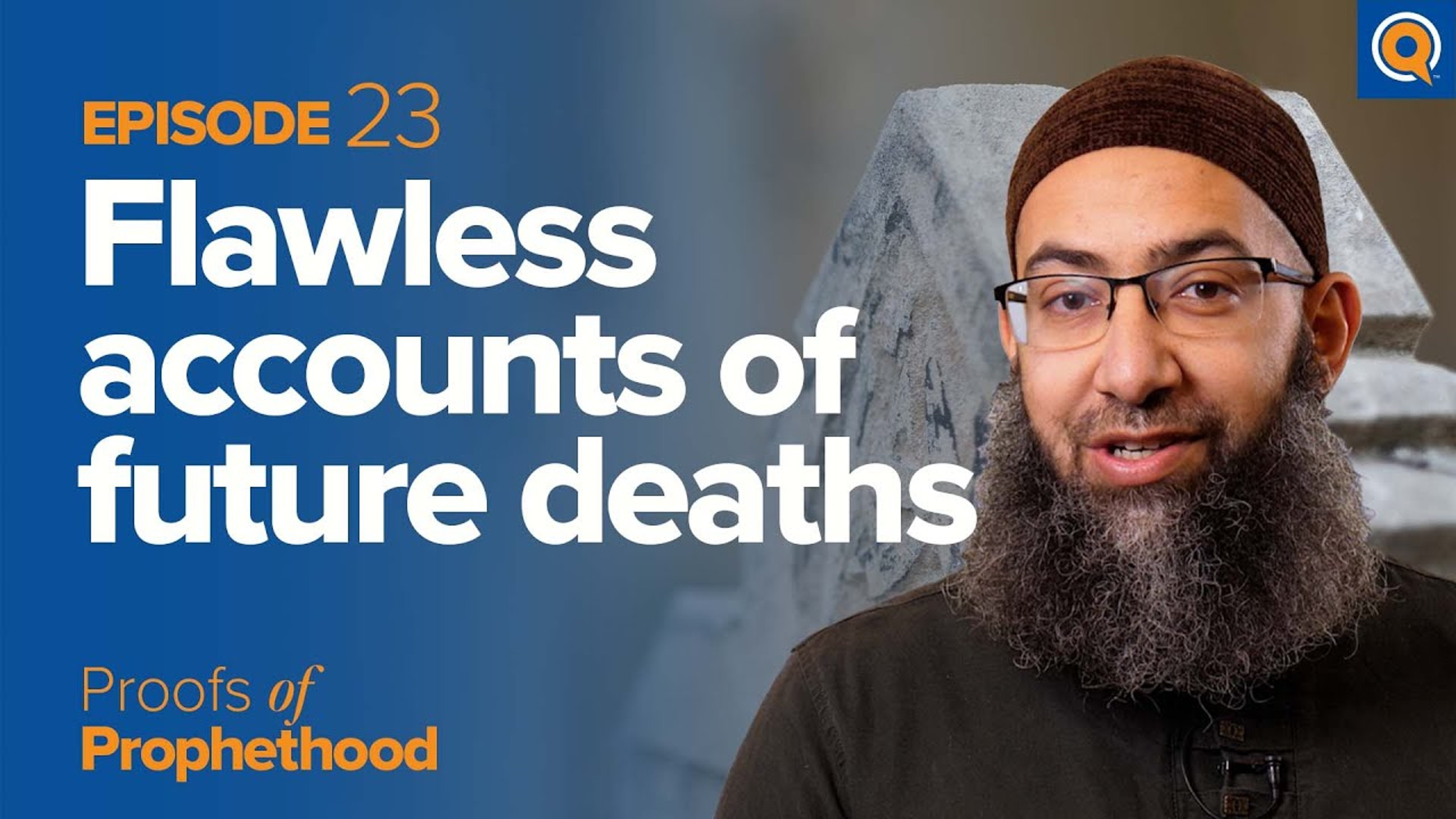Jump to:
Proofs of Prophethood
His Companions' Deaths: The Prophet’s ﷺ Prophecies
Along with prophecies about who would die in battles before they begun, Prophet Muhammad ﷺ also predicted the deaths of several companions and the manner in which they would die, including Ammar ibn Yasir and his death in the Battle of Siffin.
The Proofs for the Prophethood of Muhammad ﷺ eBook is available now. Download your copy here.
